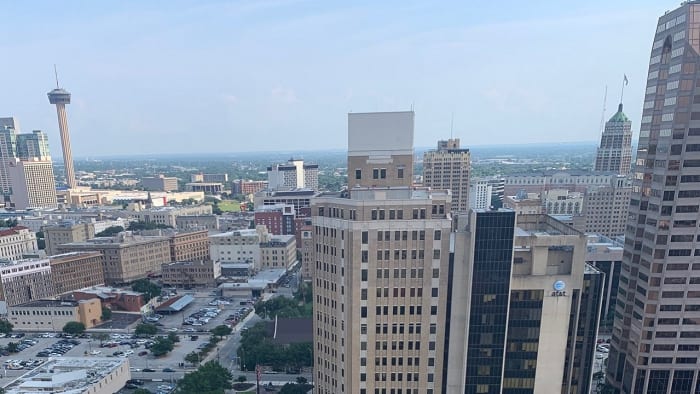SAN ANTONIO – San Antonio is raising permit fees and cracking down on unlicensed short-term rentals, on platforms like Airbnb and Vrbo.
The City Council voted 9-0 Thursday to approve the first overhaul of its rules since it started regulating short-term rentals, or STRs, in late 2018. Councilwoman Adriana Rocha-Garcia (D4) and Councilman John Courage (D9) were not present for the meeting.
STRs have grown across the city in the past five-and-a-half years, particularly in Districts 1 and 2, which cover many of the more popular downtown neighborhoods.
But while there are 3,164 registered STRs, the city believes another 1,100 are operating without a permit.
The changes approved Thursday include mandating major platforms, like Airbnb, to collect and send the city Hotel Occupancy Taxes, rather than the individual hosts. The platforms would also be required to kick off listings that don’t have a proper permit.
“So for those that aren’t paying the HOT tax, or if they’re underpaying the HOT tax, that’ll be almost instantly corrected. So we’ll see an increase in the HOT revenue for the city,” said Development Services Department Director Mike Shannon.
The city says the rule changes also make it easier to revoke the permits of problem properties, such as “party houses,” which are already not allowed.
A community task force that included the neighborhood leaders, STR operators, housing advocates, and Airbnb and Vrbo representatives had developed the recommendations.
“These changes will improve our neighborhoods, level the playing field for compliant short-term rental owners, and secure the city’s rightful revenue,” said Shelley Galbraith, a member of the task force and chairwoman of the San Antonio Short Term Rental Association.
The only recommendation councilmembers changed was the price of permit fees, which the task force recommended go from $100 for three years to $300 for three years.
Councilwoman Teri Castillo (D5) proposed raising the fee to $450 for STRs classified as Type 2, which means the owner doesn’t live on site. Castillo suggested the increase could help fund a code compliance officer who is dedicated to overseeing STR compliance.
More than three-quarters of the city’s registered STRs are Type 2 rentals.
Councilman Jalen McKee-Rodriguez (D2), whose district has nearly 20% of all the Type 2 rentals in the city, says the low fees have made it “an easy and profitable decision” for investors to convert homes to STRs instead of leaving them in the housing market.
“So if we’re going to make a serious dent in the housing crisis, we need to, at every opportunity possible, change the incentive structure,” McKee-Rodriguez said.
“We need to make it less profitable for profit-seeking companies to take a scarce resource like housing, and pimp it out as a small-scale hotel business, instead of renting it to families in our community.”
Copyright 2024 by KSAT – All rights reserved.











